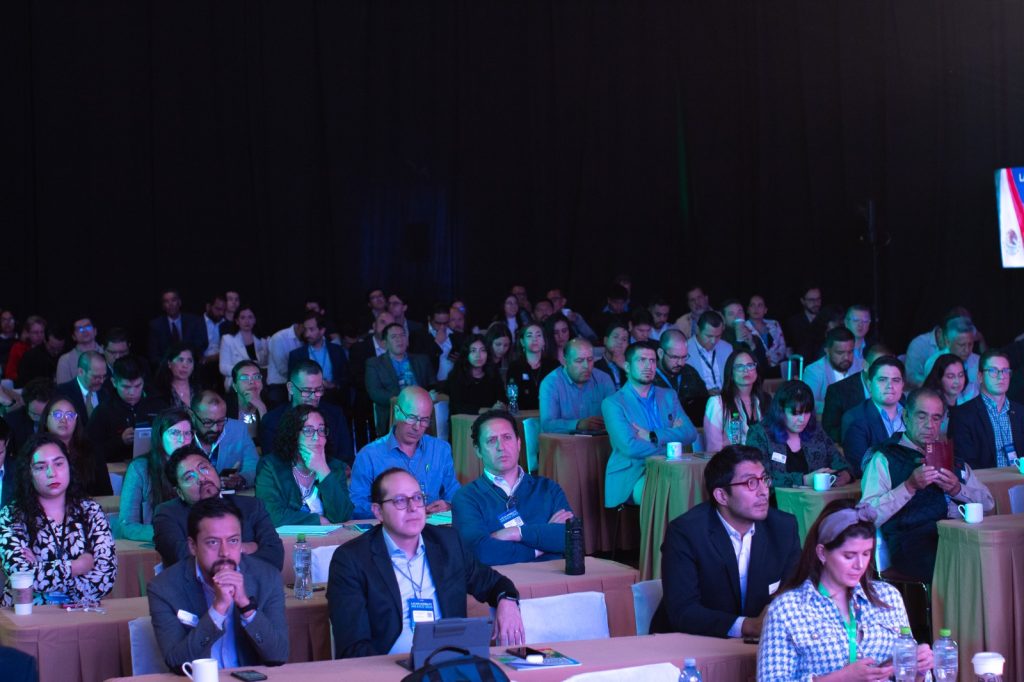“Smart Cities: The importance of public-private articulation”, made up the prestigious agenda of topics on sustainable mobility at the “Latam Mobility: Mexico 2023”, a meeting that closed Invest in Latam’s annual tour in the region.
Ariel Campos, Head of Building Products of Siemens Mexico, Central America and the Caribbean, highlighted that Siemens has been working for more than 100 years in Mexico and the world to improve the quality of life.
“We seek to minimize the carbon footprint in the city. Siemens provides technology with purpose. We did a study and half of the executives of large cities stated that there are no measures to have smart cities, that’s where we help,” he explained.
“We provide the charging infrastructure, but we have to go further with clean energy infrastructure for chargers and also monitoring. The goal is to have a positive impact,” Campos emphasized.
He assured that one of the big challenges is to have sustainable buildings, since citizens spend 90% of their time inside the precincts. “For this reason we must have precincts with healthy conditions, electrical infrastructure and technology that lead to smart cities.”
Clipp MaaS Digitalization
Bruno Valarezo, CEO of Clipp MaaS, detailed that they work on different projects that seek to boost the development of smart cities in Latin America.
“One of our pillars is the digitization of mobility, where actors and operators can develop a platform that helps them. The actors must be connected and integrated to help them in the best way,” he explained.
He highlighted that another ambitious plan that Clip MaaS wants to implement is to place 100 electric cabs in the cities where they operate, under fleet management system, which represents one of the great challenges in the company’s path to boost electromobility.
EPM’s Sustainable Vision
Carmén Helena Marín, Executive VP Business Advisor at EPM, underlined the sustainable impact that the company has in the six countries where it operates, through eight businesses that contribute to the quality of life.
“We want to ensure that smart cities are a reality in transition and for this we have an 85% clean energy matrix for the conversion of less polluting vehicles,” she added.
Marín explained that in Colombia they have significantly promoted electric mobility, with large investment in charging infrastructure and non-conventional renewable energy.
“We help with remote management, security, among other elements that provide measurement and metrics for data and decision making in cities. We are moving the ecosystem towards what we want to do as a city,” he emphasized.
Dhemax and Partnership Importance
Andrés Barentín, CEO of Dhemax, also attended the Latam Mobility conference in Mexico to generate networking and provide perspectives on the development of sustainable mobility in the region.
He said that Dhemax has operations in Colombia, Uruguay and Panama, and is working on opening soon in Mexico.
“We are enablers of transportation migration, we are very well positioned in energy management for transportation and we help fleets to generate their change strategy,” explained Barentín.
He considers it essential that fleet operators understand that the change to an electric vehicle not only benefits the environment, but also reduces operating costs.
The Chilean company’s executive pointed out that another of the attributes of its platform is to manage a network that operates according to predefined rules and an energy scenario adapted to the needs of each country.
“We are an ally to massify electric transportation in Latin America”, concluded Barentín.
Ualabee Connections
René Fernández, Head Government Latam at Ualabee, explained that they specialize in developing mobility technology, with a focus on connecting people and destinations.
“We seek the integration of the community where through the app they arrive quickly and economically, they can communicate and have real-time information such as delays or buses that are not going to pass,” he said.
Fernández considers it fundamental to standardize the data provided to governments so that they can make better decisions and align themselves with world standards.
“Public-private articulation and the community in general is key, so that governments listen to us. We understand mobility as something dynamic, so it is key that they can visualize data and be more efficient at peak hours,” he concluded.
DHL’s Challenges
Juan Carlos Aderman, DHL’s VP of Transportation for Mexico and Latam, said the parcel giant’s main goal is to achieve zero carbon footprint by 2050.
“In Latin America we are developing an ecosystem for footprint reduction with a worldwide program that contributes to sustainability,” he said.
Aderman noted that the strategy is not only based on electric vehicles, but on investment to have “green buildings” in construction, lighting and waste management, which will lead to smart cities.
“We have set trends through a diverse fleet, design with engineering to use fewer and better vehicles in our operations adapted to different markets.
He assured that DHL works in all sectors with the different requirements to adapt fleets, highlighting that in Mexico they launched 50 electrified units with different characteristics to avoid isolated solutions.
The panelists concluded that public-private articulation together with significant investments in digitalization will be key to achieve the development of Smart Cities.




